The Dawn of a Healthier Ngariawang
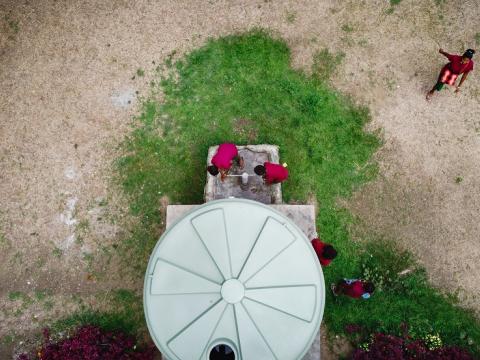
An estimated 80 percent of the population of Papua New Guinea (PNG) lives in rural areas. Only three out of ten people in rural areas have access to safe drinking water. And only one out of ten people has access to improved sanitation.
Kevin Desmond hails from Ngariawang village in the Markham district of Morobe Province.
Growing up, Kevin was diagnosed with malaria, leaving him semi paralysed. With his left body lamed, Kevin has been receiving constant love and care from his family and community over the years.
Now seventeen years of age, Kevin was faced with the common challenge of limited access to safe drinking water and basic sanitation.
Amongst the onlookers, the curious and enthusiastic Kevin stepped out of the crowd to grab a glimpse of the World Vision visitors that visited the community.
He was at the Yueng village; almost a kilometre uphill from Ngariawang.
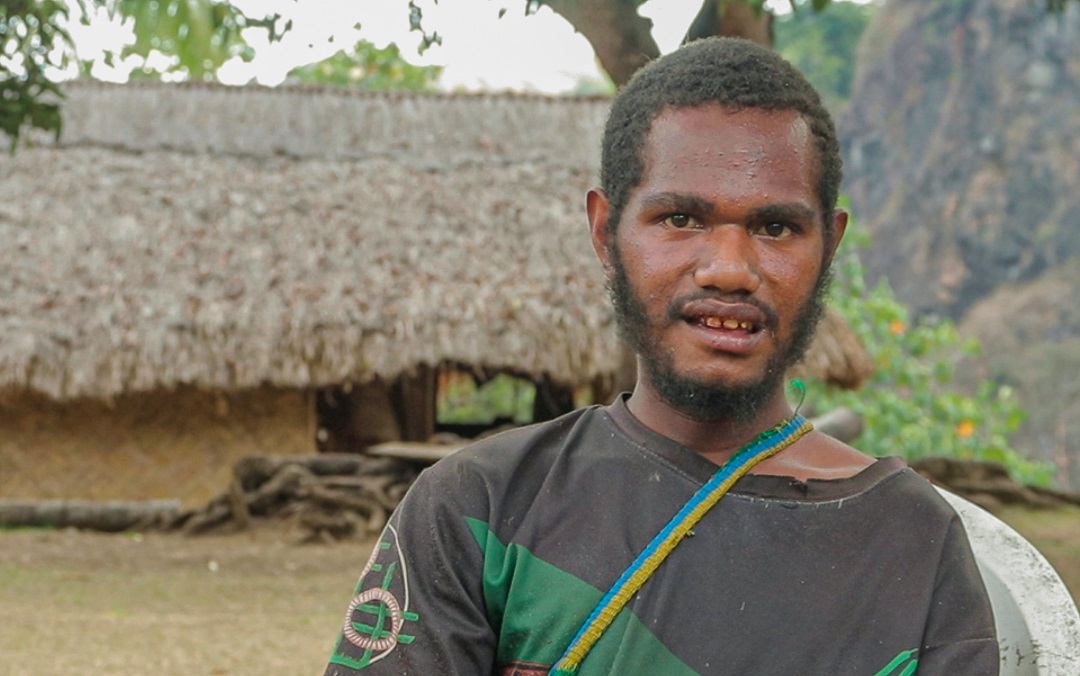
Standing idly, he displayed enthusiasm when he excitedly agreed to share his story of how life was when he was growing up.
“I like to go hang out by the river during the day. I spend my day with my buddies, Sam and Tony”, Kevin expressed.
“He was paralyzed for three years before he could walk again,” expressed Martha Desmond, Kevin’s mother.
“With Kevin’s condition, he was having trouble using the previous toilet we had. The new toilet is ok for him”, Martha explained.
We have a toilet. I always wash my hands after using the toilet and before eating", Kevin conveyed confidently.
World Vision is supported by the Australian Government through the Water for Women Fund and has implemented in several WaSH sites in Markham district.
The project aims to strengthen national and subnational WaSH sectors systems, increase access to WaSH services in communities and institutions, transform the social norms to the advantage of women; empower people with disability and marginalised groups, and information sharing amongst stakeholders and partners.
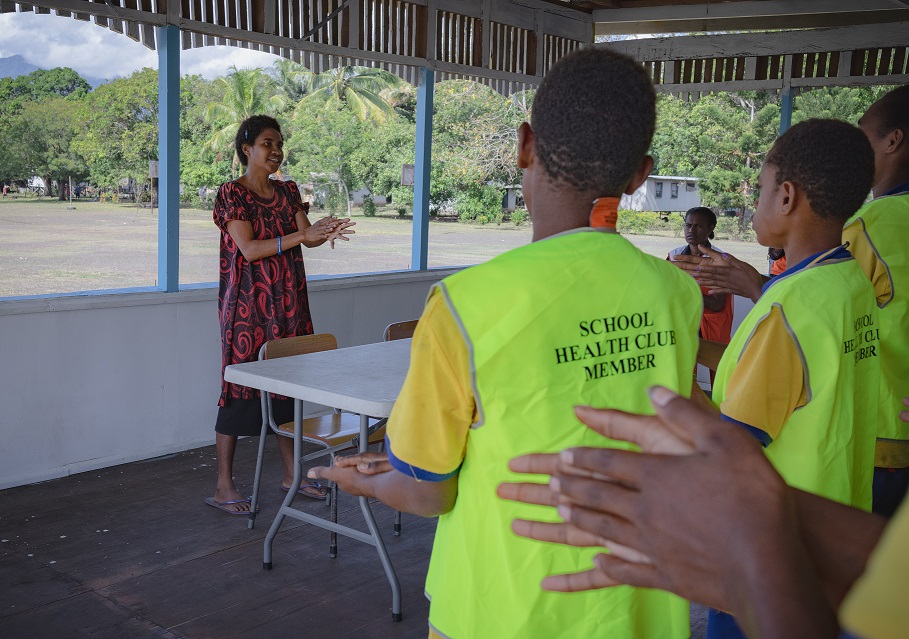
The WaSH Markham project has three components; WaSH in Health Care Facilities, WaSH in Schools and WaSH in communities.
“Before World Vision's intervention, we had children defecating around the village, near the houses. Unaware of the dangers we had a lot of diarrhoea cases,” Ruth Levi explained.
Ruth is a member of the Ngariawang WaSH committee, a team empowered to encourage the community to participate as they strive to build a healthier community.
Ngariawang village was recently declared an Open Defecation Free (ODF) community.
"A community is declared as ODF when the number of toilets in the community equates to the number of houses." justified World Vision WaSH project officer, Benjamin Hembi-Du.
“Ngariwang and Yuweng communities are the first two communities to be declared as ODF,” He added.
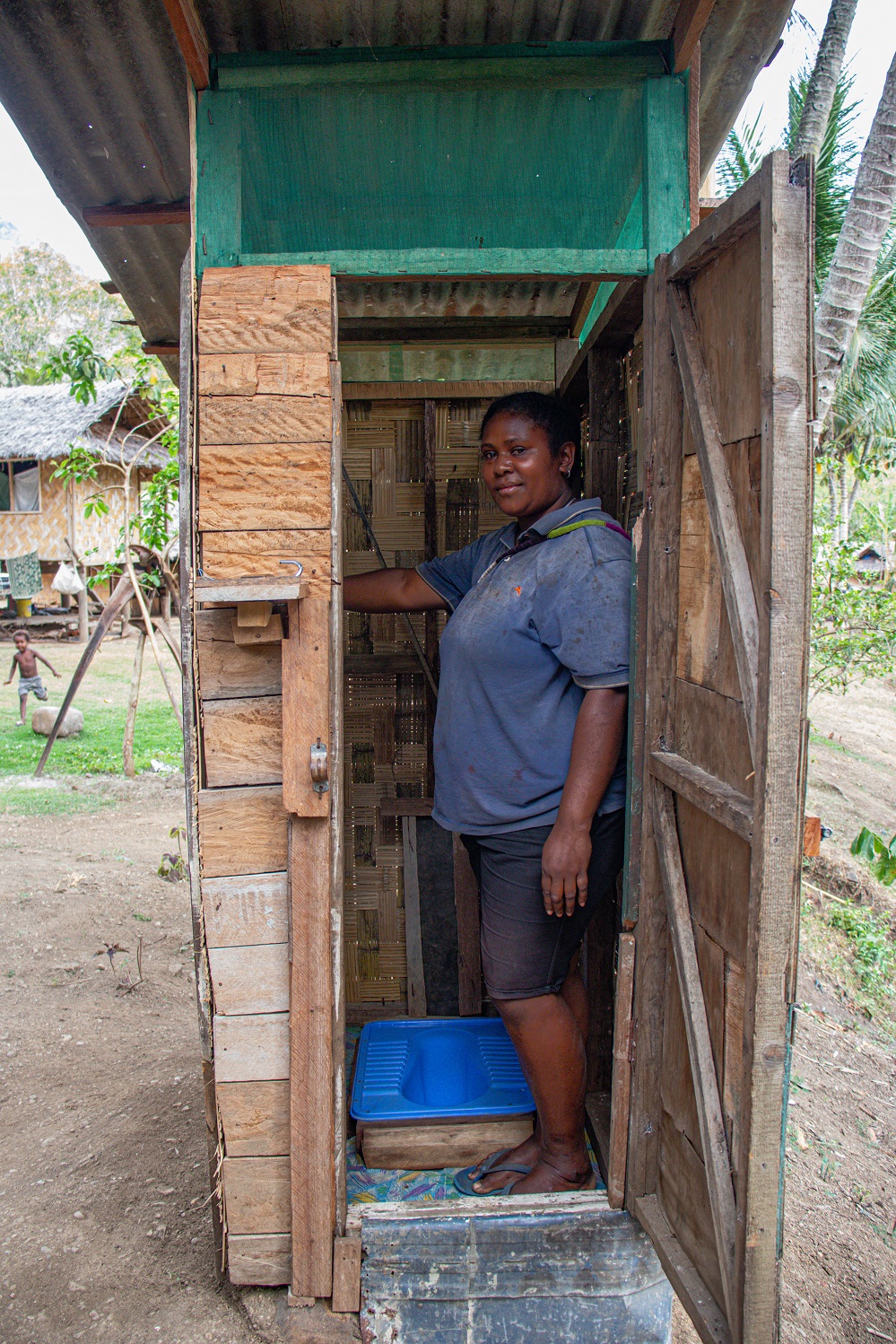
Ruth commended the installation of water taps that brought about much-needed access to clean water on behalf of the women in Ngariwang.
"Now, it is easier for us, mothers, to bathe the children, even do laundry and it also helps with Menstrual Health Management (MHM)." Ruth expressed.
"In terms of water, the installation is a great service to the community. We have been using the old water source for more than forty years. It was well managed but as the population increased, we started to have problems.” stated John Sam, the former village counsellor.
John served two terms, a total of ten years as the village counsellor of Ngariawang. These days he is a community leader and a WaSH advocate.
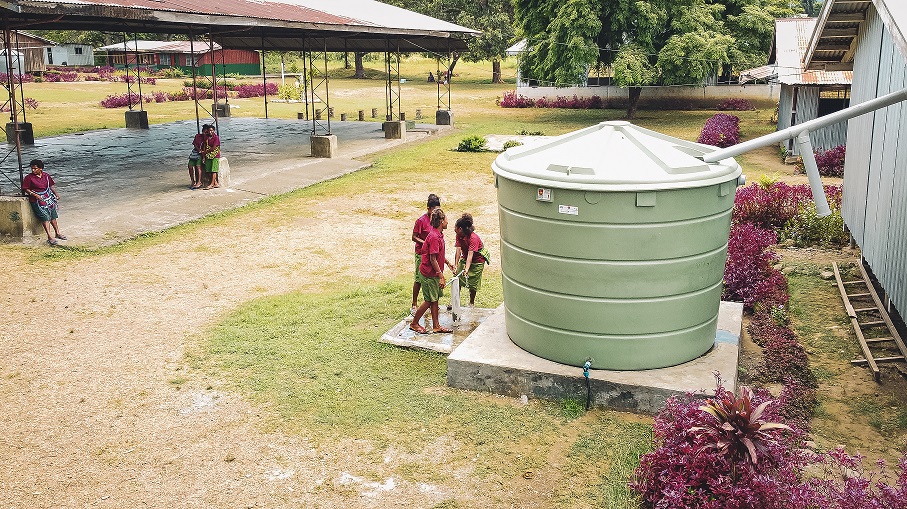
“The rehabilitation of the water supply has brought about a lot of support to the women and children. We are happy to have safe water provided with the aid of the donor through World Vision,” adds John.